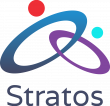In this Year of Open Science there is a lot of free flowing energy circulating about the benefits of open research to improve research integrity, generate more collaborative approaches, improve equity and inclusion, and generally get us to better outcomes more quickly. As a long time open research advocate and professional, I wholeheartedly agree. But there is still little direct evidence for how, why, and when open research practices improve science.
Incentivizing Collaborative Open Research (ICOR) is one of several initiatives to actively foster research on open research, both by conducting it directly with partner projects, and advocating for funding and support of it in the broader landscape. A new field studying open, equitable, and collaborative scholarship will provide the backbone evidence needed to shift our research culture and inform policies and emerging best practices.
Without standards on how to implement and track open research, each funder and institution will be counting open access, data sharing, preprinting, reviewing, and other open activities in their own way. It will be even more challenging as the sheer number of shared outputs grows, to go back and normalized the metadata and persistent identifiers needed to conduct larger studies on open research. Citations of datasets and other non-article outputs will be inconsistent, reducing our ability to understand impact and reach.
Now is exactly the right time for open research funders and initiatives to come together and invest in the study of open research, to build a new discipline and expand and bolster the commons that is already supporting open research. This commons, made up of persistent identifier organizations, tool builders, policy-makers, open research advocates and workers, and more, has been surviving and not thriving due to scarcity of funding and the fractured landscape that this produces. And there are very few opportunities to actively study and report on open research, despite the promise shown during the COVID-19 pandemic.
As governments and funders turn their attention to fueling open research, ICOR and other open research entities and actors can facilitate the creation of a shared agenda for the collective action needed to understand how best to study, implement and facilitate open research.

